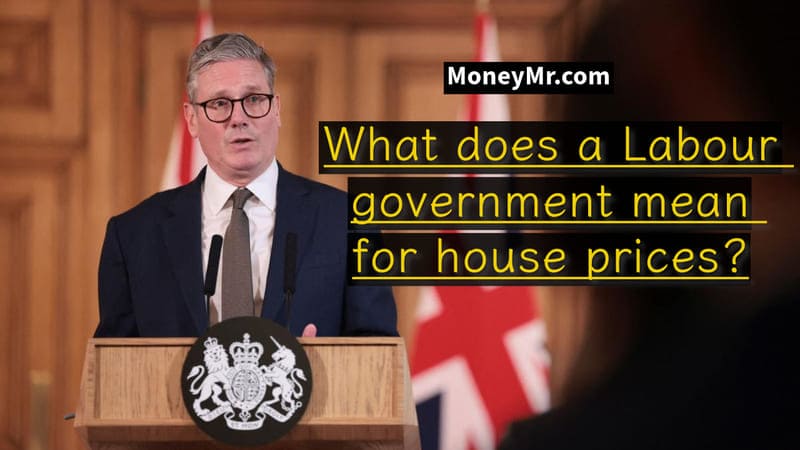The Labour party’s election victory coincides with a challenging period for the housing market. They won and how question is What does a Labour government mean for house prices? Lets discuss in this article.
What does a Labour government mean for house prices?
Recent concerns about soaring inflation and higher mortgage rates led to predictions of a significant decline in property values.
Although a crash hasn’t occurred, housing prices have decreased over the past two years as households, facing financial strain, have delayed moving.
The new government, led by Keir Starmer, has promised to construct 1.5 million additional homes during its first term and maintain affordable mortgage rates, while also assisting first-time buyers.
The question remains whether this change in leadership will have a meaningful impact on the housing market or if the current trends will continue.
House prices Conservatives vs Labour Government
The UK housing market has experienced varying levels of growth under different governments.
During the Conservative-led coalition with the Liberal Democrats (2010-2015), house prices increased nearly by 14%.
In contrast, under Labour’s leadership (1997-2010), prices surged by approximately 175% over 13 years, with a significant spike in the initial five years following Tony Blair’s election win in 1997.
The rapid growth during the Labour era was partly attributed to more lenient mortgage lending practices, including less stringent stress checks and widespread use of interest-only loans.
However, this ease in borrowing contributed to the subsequent housing market crash, leading to stricter regulations and a shift towards more cautious lending practices. These changes have since influenced the pace of house price growth, with prices rising more slowly and steadily in recent years.
House Prices will be based on interest rates
For most experts, the trajectory of interest rates is expected to have a far greater impact on house prices than Labour’s policies.
Currently, higher mortgage rates are limiting many home buyers’ budgets and deterring people from purchasing homes.
Richard Donnell, executive director of research at Zoopla, concurs. He adds, “The main driver of house prices is the outlook for base rates. The first cut will boost market sentiment and support sales, which we expect to be 10 percent higher than last year.”
In the long term, Donnell believes Labour’s policies will not significantly alter the housing market. “There are policies to support first-time buyers, but they are more limited in scope, aiming to reduce costs for these buyers. The mortgage guarantee proposed by Labour will help about 5 percent of first-time buyers each year.”
More Homes may have impact on House prices
The harmony between the number of homes available and the demand for them significantly impacts the housing market’s well-being.
Recently, Zoopla revealed that the inventory of homes for sale has reached an eight-year high, providing buyers with a wider range of options and contributing to a modest 0.1% decline in house prices over the past year.
Historically, a shortage of supply has driven up house prices, with UK prices increasing fivefold over the past five decades, outpacing the rest of Europe.
If the Labour party fulfills its promise to build 1.5 million new homes in the next five years, it could lead to an annual increase of 65,000 homes entering the market, potentially keeping prices in check.
An influx of new properties could restore balance to the market, making homeownership more accessible and affordable for many.
Labour government impact on House prices
The Labour party’s decisive election win may bring a sense of stability to the housing market, potentially boosting buyer confidence. Prior to the election, house prices had been relatively stagnant, with slight fluctuations reported by Nationwide and Halifax in June.
Experts attributed this stability to uncertainty surrounding the election outcome and high borrowing costs, leading many potential buyers to delay their decisions. Now, with a clear government in place, experts predict a possible uptick in housing market activity.
Alice Haine, a personal finance analyst, notes that a stable political environment can instill confidence in the market, particularly for significant financial decisions like buying or selling a home.
Nicky Stevenson, managing director of Fine & Country, expects the Labour victory to positively impact the housing market, leading to increased buoyancy once the political landscape settles. She also anticipates fresh perspectives from the new government, potentially bringing stability to the industry after years of fluctuations.
Overall, experts forecast cautious optimism for the remainder of the year, with a stable government majority benefiting both the property and financial markets.”






